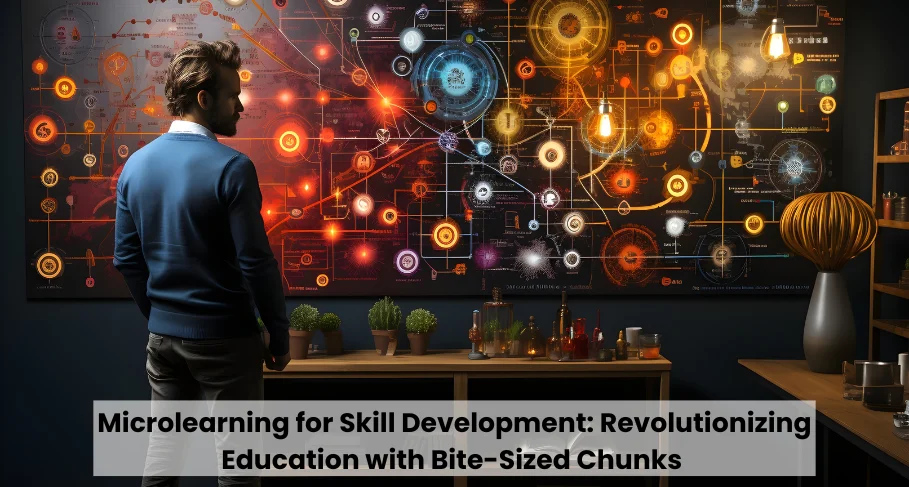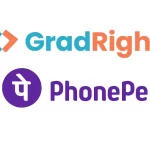The ever-evolving landscape of education and the growing professional development segment have fuelled the concept of microlearning. It acts as a powerful tool for skill acquisition among new-age learners. This innovative approach ensures that learners get access to skill development on the go by breaking large learning programs into small, manageable chunks. The flexibility it offers makes it a go-to among busy learners.
This article covers what microlearning is, its benefits, challenges, and strategies for making it work.
What is Microlearning?
Microlearning is a growing educational strategy that uses multimedia-rich short-form learning content. The duration of the content typically ranges from 2 to 10 minutes, making it ideal for busy learners. The approach focuses on specific learning objectives and enables learners to achieve their learning goals and acquire new skills without having to spend long durations in learning and training programs. The micro lessons include varied formats like videos, infographics, simulations, quizzes, audios and interactive modules, making learning more engaging and accessible.
Calibr is a great example of how technology meets microlearning.
Calibr is a modern learning experience platform (LXP) revolutionizing microlearning course development with its AI-powered course authoring tool. It enables the rapid creation of bite-sized and engaging content for today’s learners. By integrating advanced analytics and personalized learning paths, Calibr ensures that each microlearning experience meets the unique needs of learners, promoting effective skill acquisition and retention
Benefits of Microlearning for Skill Development
Enhanced Retention and Recall
Microlearning is designed in smaller chunks that capitalise on the brain’s natural ability to process and remember information effectively as compared to the large volume of information. The learner focuses on one specific skill or piece of knowledge at one time, which helps them retain information and reduces cognitive overload. The bite-sized learning approach is aligned with the spacing effect, a psychological principle suggesting that learning is more effective when spread out over time. This results in microlearning enhancing long-term retention, ensuring learners understand, learn, retain and apply their knowledge/skills as required.
Increased Engagement
Disengagement can lead to demotivation. Traditional training sessions can often feel monotonous, and learners may quit the programs mid-way. On the other hand, microlearning leverages dynamic content-rich multimedia, such as videos, quizzes and simulations, that help maintain learners’ interest. Microlearning modules’ diverse and short nature makes the learning experience engaging and enjoyable for learners. Many programs also incorporate elements like gamification, such as rewards and batches that further boost learner interest, motivation and engagement, transforming the learning experience.
Flexibility and Accessibility
One primary advantage of microlearning is the flexibility it offers. Microlearning modules are short and crisp, allowing learners to learn at a fast pace and at any time. Mostly, the modules can be accessed across devices like tablets, smartphones, and computers. This convenience allows learners to fit learning slabs into their busy schedules and learn on the go. Microlearning’s on-demand nature ensures learners are able to learn at their convenience as they are juggling between professional development and work-life balance. This is one of the most important characteristics that makes it an ideal solution for today’s fast-paced world.
Immediate Application of Knowledge
Microlearning is designed to provide concise and actionable information that can be used right away in practical situations. Learners are equipped with skills that they can integrate into their regular operations, improving their performance or productivity. This hands-on learning experience ensures that learners’ acquired abilities can be used in real-life situations and aren’t only theoretical. As a result, microlearning bridges the gap between application and learning, making the learning process more successful.
Cost-Effective Training Solution
Delivery and development of traditional training programmes can be labour-intensive, involving large amounts of money, significant time, and resources. On the contrary, microlearning provides an effective substitute by employing easily available technology and digital platforms. It is cost-effective for both small and large organisations, as producing and distributing microlearning content requires little production expenses. Additionally, its scalability maximises return on investment by allowing businesses to reach a larger audience without having to spend a lot of money.
Personalised Learning Experience
Learners get to access personalised educational experiences that suit their unique requirements and interests, as microlearning offers a high degree of personalisation. In order to create a personalised learning path, students can select particular modules that align with their interests, skill gaps, or professional goals. This focused approach ensures that learners obtain the most important and relevant information while also increasing relevance and motivation. This also provides authority and control over the learning process via a personalised learning trajectory, enabling people to take charge of their professional development.
Rapid Skill Development
The industry is changing and innovating at a fast pace. This requires the workforce to have the ability to unlearn and relearn new skills as needed. Microlearning supports agile learning through short, crisp and swift training programs that address the learning needs immediately. To stay relevant and competitive, learners need to stay up to date with the latest developments in their respective fields of work and best practices for productivity and efficiency. Microlearning offers flexibility and helps learners in rapid skill development, meeting the demands of their roles in the evolving job market, thereby improving their career prospects and organisational value.
Also Read: Tools Teachers Must Use To Create MicroLearning Content
Potential Cons of Microlearning: The Flip Side
Despite its multiple benefits, microlearning is not a magic bullet. It does have certain potential drawbacks that can be managed while creating microlearning programs. Here are some potential drawbacks and ways to avoid them:
Limited Scope for Complex Skills and Comprehensive Concepts:
The strength of microlearning lies in its focus. However, learning complex skills requires in-depth knowledge, understanding, and practice. In such cases, microlearning may not be a well-suited option as it can lead to a fragmented learning experience.
Microlearning runs on short and crisp learning modules that can restrict the depth of knowledge acquisition, making it difficult for learners to learn complex or comprehensive concepts thoroughly. Traditional learning methods, such as in-depth, hands-on courses or workshops, may be more appropriate for topics that require in-depth learning. Alternatively, complementing microlearning with other educational strategies can provide a well-rounded learning experience.
Potential for Information Overload:
Despite simplifying learning, microlearning may lead to information overload when not appropriately managed or when too many modules are delivered simultaneously. Access to all learning modules can tempt learners to go through all content quickly, leading to cognitive fatigue and diminished retention. Avoiding this pitfall requires structured learning that allows learners to gradually engage with their learning modules. The amount of information may be managed by helping students prioritise and concentrate on the most pertinent courses, thereby improving learning outcomes.
Difficulty in Measuring Impact:
Due to the short-form content and varied formats, microlearning evaluation and effectiveness can be tricky. Conventional assessment options like exams or comprehensive assessments may not be appropriate for measuring its effectiveness. Instead, continuous feedback systems like quizzes, micro-assessments, and performance analytics can help measure learner progress and engagement. Creating robust continuous assessment frameworks that complement microlearning goals can provide important information about the learning results and potential areas for development.
Strategies for Success: Making Microlearning Mighty
To reap the full benefits of microlearning, here are some key strategies:
Needs Assessment
Starting with an assessment that can determine which particular skills students need to develop can help. This will ensure targeted learning and help create the right content as required.
Variety Is Essential
It’s imperative that a variety of content formats are utilised so that learners do not get in the loop on monotony. Using varied multimedia like videos, audio, texts, infographics, and other interactive elements can help in keeping learners engaged.
Connect the Dots
Learning modules must be complemented by opportunities for real-world application. Practical exercises, case studies, and simulations can be useful resources.
Evaluation and Comments
Using short assessments to gauge learners’ understanding can help identify gaps. Identify areas that require additional focus and promote learning by providing feedback.
Integration with Broader Learning
Self-directed study, workshops, and mentorship are some of the learning modalities that work great with microlearning for an effective learning experience.
Microlearning is a transformative approach to education and professional development. Its flexible and engaging nature makes it ideal for the 21st-century learner, making it an efficient method for skill acquisition. Breaking down topics into manageable chunks enables the learner to retain and apply new knowledge more effectively. However, it comes with limitations and requires creating a balanced learning ecosystem. By leveraging microlearning’s strengths while mitigating its challenges, it is possible to create a dynamic and adaptable educational landscape that can empower learners to thrive in an ever-changing world.


